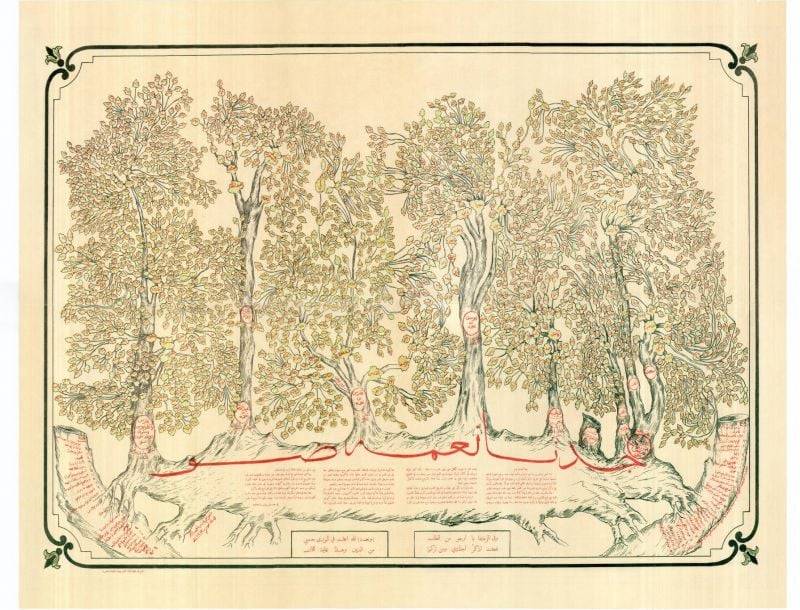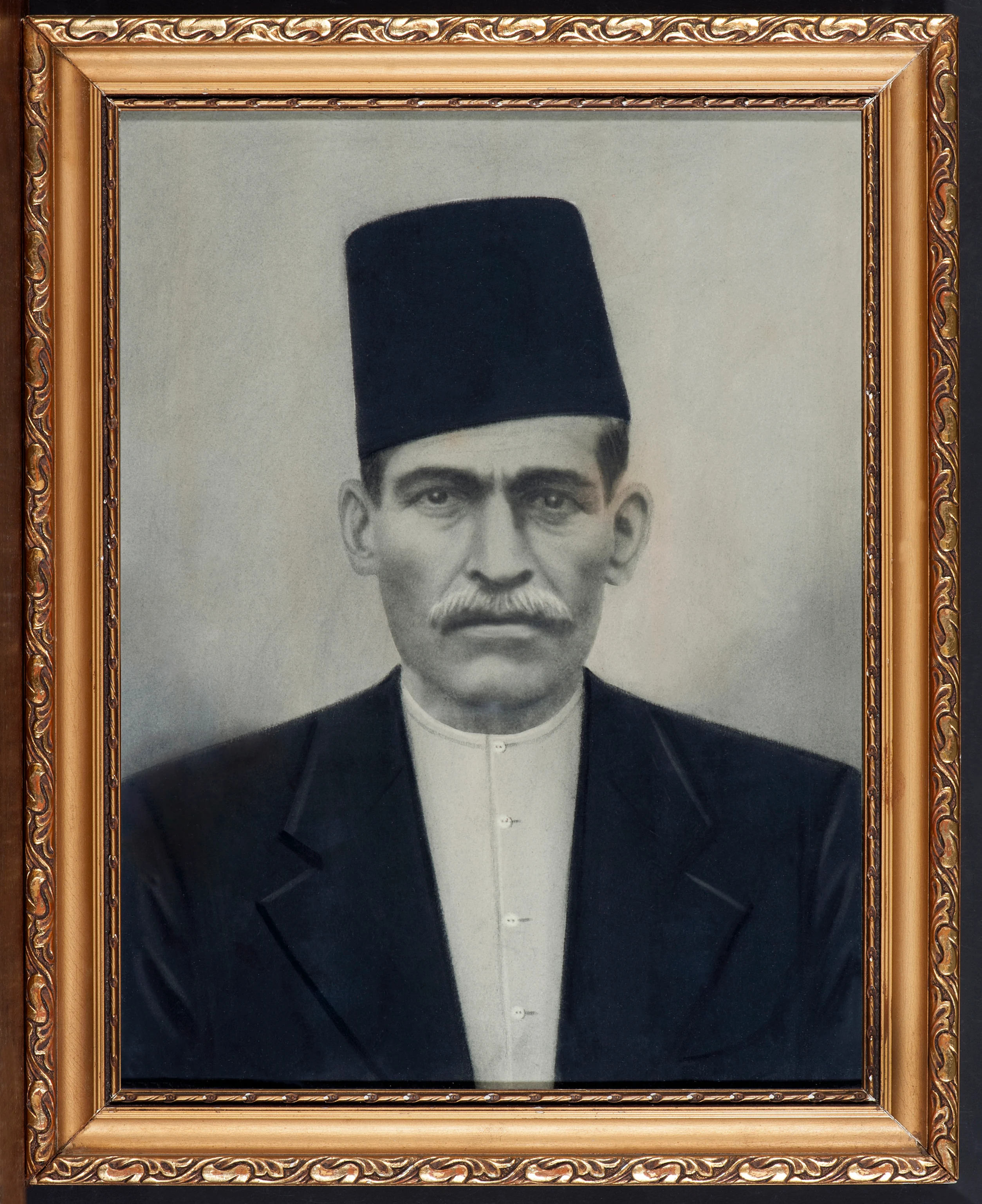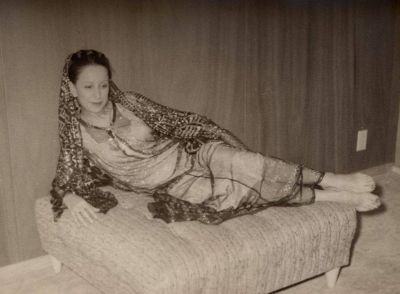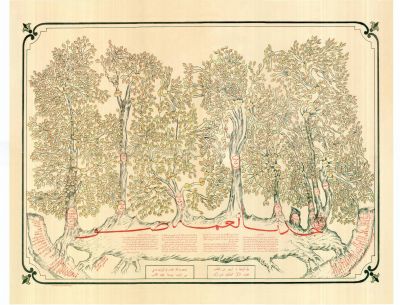
A family tree showing the name of Joseph Ibrahim Nehmeh, found in Deir al-Qamar. (Copyright: Nehmeh Bechara Nehmeh)
The families who welcome or bid farewell to their loved ones at the airport today are a reflection of thousands of others who experienced the heartbreak of being separated, or the joy of the reunion, over the past centuries.
Recent unprecedented research, conducted by several researchers, made it possible to trace one of the first Lebanese people to have taken to the sea before the great waves of emigration of the 19th and 20th centuries.
It was not easy to trace the whereabouts of Joseph Ibrahim Nehmeh, a man originally from Deir al-Qamar — then the capital of the Emirate of Mount Lebanon — who arrived in Rio de Janeiro in 1795. How do we know that this man really existed?
His name appears in the work of a Brazilian researcher and writer of Syrian-Lebanese origin, João Abdalla Neto, who died in 2022. Neto mentions in his 2013 book Limamo: Um herói brasileiro one tidbit from the official Brazilian newspaper, Gazeta do Rio de Janeiro, in 1820:
“Mr. Joseph Ibrahim was a captain of the Mamelukes [a type of expedition in the interior of colonial Brazil, in search of wealth], Knight of the Legion of Honor. Born in Deir al-Qamar, Syria, on Sept. 8, 1776, he obtained from His Majesty King Dom João VI the certificate of naturalization of the United Kingdom of Portugal, Brazil and the Algarves.” The news item was published on Jan. 12, 1820.
Research in Deir al-Qamar
Starting from this reference to this Joseph Ibrahim, whose family surname was not specified, researchers began their journey in Deir al-Qamar, cooperating with the Lebanese-Brazilian researcher Ramez Labaki. His name was found in a family tree that lists back to 1600, and which was drawn in 1913 by Nehmeh Bechara Nehmeh, according to the 2001 book Capital of Mount Lebanon by Joseph Nehmeh. In this family tree appears the name of Joseph, son of Ibrahim, from the Nehmeh family of Deir al-Qamar.
 Jacob Menassa, among the first Lebanese emigrants to return to his native country at the beginning of the 20th century. (Courtesy of: Jacques Menassa)
Jacob Menassa, among the first Lebanese emigrants to return to his native country at the beginning of the 20th century. (Courtesy of: Jacques Menassa)
The researchers took into account the mobility of those who lived in the Emirate of Mount Lebanon, which lasted from 1516 to 1840, and started their search on Joseph Ibrahim Nehmeh’s family background there. It turned out that he had emigrated during his youth, in 1795, due to political unrest.
Nehmeh arrived in Lisbon, Portugal, where he worked for the Portuguese navy on a ship that later docked in the port of Rio de Janeiro, the capital of the Portuguese colony of Brazil. Joseph continued to work aboard Portuguese ships until he became “captain of an exploration expedition.” In Rio de Janeiro, he became a wealthy merchant and received various honors, and in 1820 he was naturalized just two years before Brazil’s independence in 1822.
Joseph Ibrahim Nehmeh is likely among the first emigrants from Mount Lebanon to Brazil, having made his journey 227 years ago. Nehmeh died in Rio de Janeiro around 1840. Nearly two decades later, in 1858, Brazilian emperor Dom Pedro II of Alcântara signed the Brazilian-Ottoman treaty of friendship, trade and navigation, which resulted in an increased flow of Turkish, Arab, Armenian and Greek merchants to Brazil.
The great emigration of Lebanese and Syrians to this country began after the visits of Dom Pedro II in 1871 to Egypt and in 1876 to Mount Lebanon, Syria, Palestine and again to Egypt. Today, people with origins in the Arab world are a major community involved in Brazilian society in all fields, including culture, arts and politics.
The wave of return
While the history of Lebanese emigration is fascinating, that of the return of the country’s sons is no less interesting. One of the first returnees would be Jacob Ibrahim Menassa, born in Ghosta, Mount Lebanon, in 1872.
Having heard about Brazil after the visit of Dom Pedro II to Nahr al-Kalb in 1876, he emigrated to the Amazon in 1895, at the height of the rubber trade in that region.
Soon, Jacob not only succeeded in trade: in 1900, he returned to his native country with the aim of trading between Brazil and Mount Lebanon under the Ottoman Empire. Without knowing it, Jacob was one of the first in Lebanon to form the Lebanese-Brazilian community, 122 years ago. This community is still active in Lebanese society, in all fields, a sign of centuries-old Lebanese-Brazilian ties.
This article was originally published in French in L'Orient-Le Jour. Translation by Joelle El Khoury.

